by Jenny Rose | Jul 6, 2024 | A Flourishing Woman, Spirit
Unusually, I’ve struggled the last couple of weeks to find something I wanted to write about for this post. At times I feel so heavily weighted with grief, fear, and despair about our world (and I mean our to include all people, all species, all life on this lovely, feverish planet suspended in the cool bed of space) and the apparent lack of sane, unified values and problem solving, it’s all I can do to keep putting one foot in front of the other. I’m sustained by my communities on Substack and in real life, my garden, and the simplicity of whatever moment of Now I inhabit. At this moment Now is the smell of chicken crisping in the air fryer, the cool, damp air of a July 4th morning in central Maine coming in open windows, the weight of my laptop on my lap, the feel of its keys under my fingers, and the sleeping cats. It’s a day off. I relish it.

Photo by NASA on Unsplash
I don’t want to write about the state of the world. I have nothing to add to the conversation that feels effective or positive. I’m one of the silent millions, maintaining faith and courage as best I can for my own sake as well as the sake of those around me.
Earlier in the week I received a post from Dr. Sharon Blackie titled ‘Following the Wrong Gods Home’ that caught my imagination and gave me a different perspective.
Through the fog of sadness and fear a clear question rang in my mind: what would Baba Yaga do? And another: what gods am I following, and are they taking me home? And then, I can choose which gods to follow.
Sometimes I forget that.
Just like that, I was back in my power. I jotted down some quick notes and went off to work, feeling better.
Dr. Blackie didn’t mean this question in the formal religious sense, but in the metaphorical sense. Much of what is happening in the world now has to do with the gods people create, worship and follow. Not only real people but gods like money, status, technology, and power. To them we build temples, make blood offerings and human sacrifices. We worship them with our belief and our lives and place them above the law, feeding them with power, and they are rapacious.
No wonder Justice is blindfolded. I’m in complete sympathy. We should give her ear plugs, too.
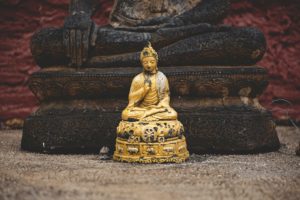
Photo by Peter Hershey on Unsplash
I think a lot about gods and goddesses. I research their stories and cultures, explore their symbols, sculptures and depictions. I write about them, dream about them, and work with various card decks referencing them. I think about our consistent human propensity to reach for something larger than ourselves, something wiser, stronger, more powerful. We seek some sense of meaning, hope there is reason for all this chaos, that one day we will come back home to ourselves and our family of all human beings on Planet Earth.
Of all the gods and goddesses I’ve made friends with, I love Baba Yaga the best. I’ve written about her before on this blog. She’s Slavic, a hag goddess associated with witches (of course).
I don’t think of myself as a feminist, but the Baba is, for me, the perfect embodiment of female wholeness. She is not obedient or submissive. She is not attached to a man. She carries no shame, no guilt. She’s wild, primal, and powerful. She has feelings and expresses them. She lives proudly in her (conventionally) hideous body. (I’m sure she doesn’t shave, trim, deodorize, make up, color her hair, do her nails or dress appropriately for her age.) She cannot be silenced. She is wise and ancient beyond wisdom and years. She does not suffer fools. She pleases only herself.
A long time ago, in an audio production narrated by Clarissa Pinkola Estes, she said women were made for times like these. I haven’t thought about that in years, but the morning I read Dr. Blackie’s post I remembered it, and I stood a little taller as I made breakfast.

By Carmine Leo
Women, after all, know how to live in a desert. We know how to live underground. Like water, we learn how to go around obstacles and wear away stone. Women endure. We wait. We bide our time and survive. Individuals may be burned, or killed, or silenced, but collective female wisdom lives on in stories, skills and crafts, recipes, traditions and ritual. Women, as vessels of life, understand death. We know how to let die what must, even if it’s ourselves. We know endings are always beginnings.
These are not times for too-sweet maidens and princes on white horses. These are times for survival, clear seeing, hard choices, courage, cunning, and strength. These are times in which we must remember how to be responsible for our own safety, reproductive health and autonomy, and education. We don’t need permission. We don’t need approval. We don’t need men to take care of us. We’ve never needed those things; it’s time to recall and reclaim that truth and teach our younger sisters and daughters how to be wild and true.
We can always make choices. I have already left Ozymandias lying in the desert behind me. I will not follow fear and despair; they cannot take me home. I will not comply with repression and oppression, neither my own or that of others. I will not be silenced. I will resist. I will persist. I will face whatever comes with my head up. I will go around, or under, or over whatever or whoever attempts to control me.
I will choose which gods to follow home.
Questions:
- Which gods have you followed in your life? Did they take you home?
- Have you chosen the gods you follow, or were they thrust upon you?
- What sacrifices and offerings have your gods demanded of you?
Leave a comment below!
To read my fiction, serially published free every week, go here: 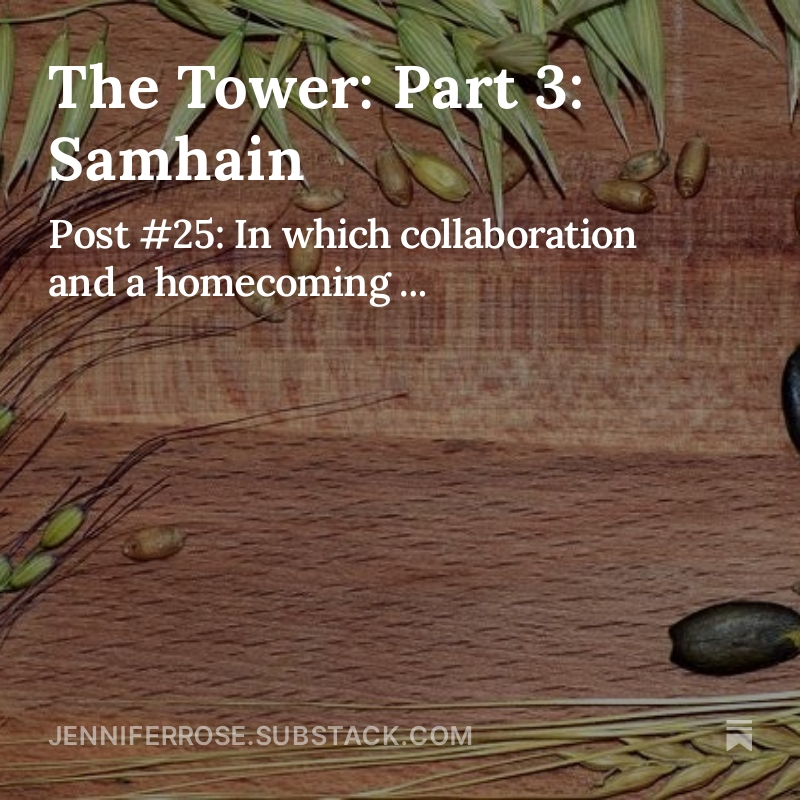
by Jenny Rose | Feb 17, 2024 | Authenticity, Emotional Intelligence
Years ago I came across a tip somewhere for getting to know new people in a meaningful (versus social media, digitally-altered images, and dating apps) manner with good questions, one of which is “What would your ideal vacation look like?”
At the time I thought it a great question and I still do. I tried it once without success. Not only was I not asked in return, I received a kind of non-answer along the lines of “I don’t take vacations …” (I wondered why, but it felt intrusive to ask) which didn’t help me get to know the party in question any better! Connection dead on arrival, the story of my life. I retired, abashed.

Photo by Quino Al on Unsplash
Ever since then, I’ve thought about my answer to the question nobody has ever asked me!
I’m thinking about it again because I just picked up Drinking the Rain by Alix Kates Shulman for the first time. It’s a memoir about a woman, about my age, who spends a summer alone in a primitive cabin on an island off the coast of Maine. Primitive means no telephone, no running water, no electricity. She has no transportation aside from her own legs. She finds the experience so satisfying and remarkable she begins to spend all her summers there, for the most part alone.
It also happens to be school vacation week here in Maine, and I hear lots of talk at the pool where I work about planned trips right now. A good friend is taking the week off with her daughter and partner to go to Florida.
Online Oxford Dictionary defines a vacation as “an extended period of leisure and recreation, especially one spent away from home or in traveling.”
Hmmm.
I looked it up because all my life I’ve heard people use the word ‘vacation’ to describe trips and adventures that sounded exhausting and stressful rather than like ‘leisure and recreation’. Of course, it’s not a one-size-fits-all definition. That’s why it’s such a great getting-to-know-you question.
I cannot remember a single vacation I’ve taken with others as a child or adult that wasn’t fraught with tension and stress, and from which I didn’t return far more exhausted and burned out than when I left home.
When people talk about vacations, I shudder.
But once I had a perfect vacation. An incredible period of leisure and recreation away from home. I’ll never forget it.
I was a struggling mother of two school-age sons in an abusive marriage, living in a small town about three hours’ drive from my sons’ father, who was too busy and important to drive to us. For the sake of my boys I therefore drove to their dad twice a month for years and years. A six-hour round trip. This effectively took care of two full weekends a month. I had chronic pain and was always exhausted. My husband had isolated me socially and controlled our finances. My mother and adoptive father had just moved to the small rural town where we lived so I was once again caring for her and my significantly older adoptive father. As Mom was also abusive, I had no respite childcare. I did not trust my husband and tried to keep the kids away from him. I solved the childcare problem by working at their little school, so we had the same schedule.

Photo by Hailey Kean on Unsplash
A friend of mine had a family cabin in the mountains west of town and she offered it to me one summer. I carefully planned for a period of time when the boys would be with their dad, and I went.
The cabin was in an isolated community, mostly of summer places. Here in Maine, it would have been called a “camp.” It had been built on a hill amidst pine trees. No road or other building was in sight. It had running water, but no electricity and no phone. These were the days before cell phones. My friend’s family used oil lamps and candles for light. The hot water heater ran on gas; I had to light the pilot light. The cabin consisted of one large room and a bathroom, with four twin beds in the main room, a fireplace, and a simple open-concept kitchen. The small fridge was also gas, as well as a rudimentary stove. Outside was a large outdoor fireplace and seating area.
I packed a couple of books, a journal, some food and minimal clothes. Nobody but my friend knew the exact location. I was alone.
I was alone! No one could interrupt me. No one could make a demand, tell me I was doing it wrong, hurt me. No one could telephone. No one could have a crisis that only I could solve. I did not have to be responsible for anyone but myself. The relief was indescribable.
It was a beautiful Colorado mountain summer. No bugs, clean air, cool nights, dry weather, abundant sun. I lit pilot lights, unpacked, put a chair in the sun, and undressed.
Yes. I undressed. I wanted to soak up every bit of sun and privacy I possibly could. I got myself a cold drink and went outside with my book, naked as the day I was born. I read for a while. I was reading Elizabeth George at the time, the author of a magnificent mystery series, each book big and fat and long.
I got sleepy in the sun and realized I could take a nap!
I went inside, chose a bed, opened it, cuddled down, and slept for almost two hours. When I got up I was hungry, so I ate. Then I went back out, moved my chair into the afternoon sun, and read some more. When the sun went down I put on clothes for warmth, lit candles, ate again.
It went like that for three blissful days. I took a shower once, and brushed my teeth when I thought of it. I ate and drank when I wanted to. I paid no attention to the time. My hours were bounded by the sun’s movement across the deck. I slept naked and spent the days naked, dressing only in the cool early mornings and evenings. I wrote and read and slept around four hours a day. When it got dark, I slept again. I had never slept like that before and I haven’t since. There seemed no end to my exhaustion and my relief at knowing I was somewhere they couldn’t find me. Nobody needed me. I didn’t have to respond. I was safe. I knew my friend would never tell my husband where I was. The kids were with their dad. It was the first time I’d ever been inaccessible to everyone.

Photo by Cristian Newman on Unsplash
No amount of money could have given me such a respite. No exotic destination could have suited me better than the utter privacy of that old cabin in the pine trees. I have never again experienced that kind of freedom to do nothing, be nothing, and know I would not be interrupted. For me, the word ‘vacation’ will always mean those three days.
I suppose some people would find this pitiable. The thought makes me smile, as it was one of the peak experiences of my life. And that’s my point; that’s why imagining (or remembering) an ideal vacation is so interesting to share with others. Such an exercise points to our longing, and what we wish to escape. I know people who love to travel and go on adventures, enjoy getting away with friends or family. I listen to their plans and stories and marvel at how different we all are, how unique our ideas of fun and what we choose to do with our leisure.
I know other people who are perfectly content at home, who have no desire to get away at all. That’s not me. I love my home, but I’d go somewhere like that cabin in a flash. I’m not so exhausted now, but I’d welcome the same feeling of being out of touch, unavailable, free of the necessity of emotional labor, not because I don’t love my friends, my job, my cats, but because I also love my solitude and one can’t do things like sit naked in the sun and read all day in company! I couldn’t, anyway. I’ve never been able to be all of what I am unless I’m alone.
Questions:
- What would your ideal vacation look like?
- What’s the best vacation you’ve ever had?
- Do you return from vacations rested and renewed or exhausted?
Leave a comment below!
To read my fiction, serially published free every week, go here: 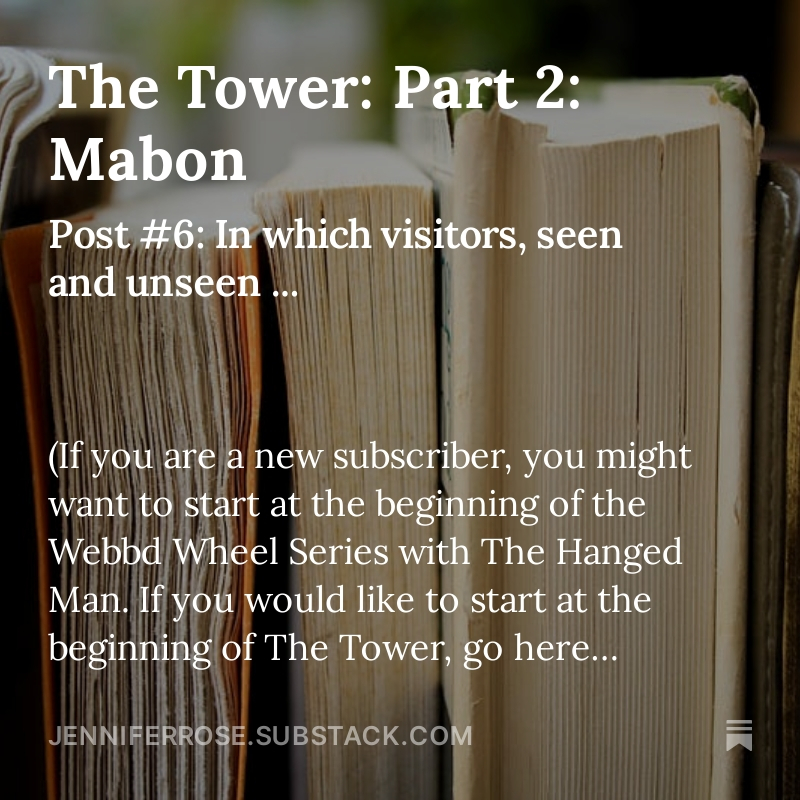
by Jenny Rose | Dec 9, 2023 | A Flourishing Woman, Creativity
Turning and turning in the widening gyre
The falcon cannot hear the falconer;
Things fall apart; the centre cannot hold.
–From “The Second Coming” by W.B. Yeats
The line “the centre cannot hold,” has been running through my mind for several weeks, through all the time I’ve been sick with COVID and whatever nasty virus followed in its wake, and my slow recovery. “The centre cannot hold.” I found a quiet moment and looked it up. I knew it was poetry, but I couldn’t remember who wrote it or what the poem was. Thank you, Google!
W.B. Yeats, of course.
I suppose it’s a common experience to feel we’ve lost our center, our groundedness, when someone significant in our life dies, as my mother just has. I’ve fought against the feeling because over the years I’ve worked so hard to individuate from my mother, to reclaim my right to center my life around something other than her. If she was not the center of my life, why do I feel things have fallen apart since she died in August?

Photo by NASA on Unsplash
Did I fail to reclaim my power, define myself and my value apart from our relationship? Has all my work been for nothing? Are my healing and growth an illusion?
I have been afraid of answering these questions.
When I reread the first three lines of the poem, I first imagined myself as the falconer and the falcon as … my soul? My joy? My wisest self? My intuition? All those and none of those, exactly. The falcon seemed like a piece of myself I lost a long, long time ago when I was child, a piece I struggled through many years and miles to find and reclaim, and now is lost again. It can’t hear me, and I can’t hear it. It feels unbearable. My center didn’t hold. Why didn’t it hold? Did I do something wrong? How do I call it back to me?
And I want to call it back, not haul it back by its jesses. In fact, why is the falcon restrained at all? If it’s truly mine and we belong together, why is it leashed? The idea disturbs me. I want it to be free. I’ve worked too long and hard for my own freedom to relish restraining any other creature. I note I assume the falcon is leashed. The poem doesn’t explicitly say so. Interesting.
Maybe my assumption of leash and jesses reflects all the ways I’ve restrained myself. As a child I internalized restraint. I had to. Everyone else felt free to throw self-control to the winds. Is my feeling of my center not holding asking me to release myself further? Is it time for deeper faith and trust in myself?
As I typed those three lines onto the page to begin this post, I imagined another picture in which my mother was the falconer and I the falcon. She no longer holds the leash. I am free. I have flown away from the only center I was allowed to have and now I’m overwhelmed by my freedom. I don’t know how to be wild. I don’t know how to live without the restraining leather jesses around my slender legs. What if I can’t? What if I perish? Must I find a new falconer to hold the end of my leash? What if my freedom is a mistake and I’m not fit to be free? What if I’ve lost the ability to fly free?
Ugh. Goosebumps.
Don’t get carried away, I say to myself. Slow down. We’re talking about emotional freedom versus physical freedom. You’ve been flying in an ever-widening gyre for years.
What’s changed is that leash, woven of blood and bone and love, woven of years and empathy and need, guilt and shame and obligation, too strong to ever be severed … except, it turns out, by Death.
What do we center around?

Photo by Bryan Goff on Unsplash
It changes, doesn’t it? In my first 20 years I centered around my family of origin. When I was in my 20s and beyond I centered around a man and my children. Work was in there, too. And my family of origin, particularly my mother, who was not pleased to be sharing the center. The proverbial 3-ring circus. It went on like that until my children emancipated and, to be honest, for some time after. Then, as they slowly faded out of my center, being far away and engrossed in their own lives, I centered around some man (but not the same one; I’m a slow learner) and my mother. Slowly, writing began to nudge for a place in the center as well.
This created real problems. Mom could never tolerate sharing. I was used to her competition with the kids and whatever man I was involved with but the writing would have created a real threat, so I hid it. The more I hid it, kept it inviolate and safe from outside sabotage, the more I centered around it, and the more I centered around it the more threatened she felt, though I’m not sure her reaction was conscious and she had no idea what she was fighting against. She just knew she didn’t have all of me anymore.
She was right to feel threatened, because writing eventually tore me away from her physically and geographically, a thing that had never happened before and a last betrayal she never forgave.
In the stresses and strains of the last couple of years, I lost writing out of my center. Oh, I still did it. I blogged and serial published. I journaled. But as Mom’s health and sanity crumbled, she became my center once again, this time to the exclusion of everything else. Work (generally part of the center for all of us) competed, keeping me sane, physically fit, and anchoring me into a community of friends, but Mom once again became the primary gravitational pull in my center. My days and nights were full of her. I had less and less respite and the intensity increased daily, winding around my life more and more tightly, and then …
She died. In the middle of the night, a night in which I lay awake in Maine while my brother sat vigil with her halfway across the country in Colorado.
When I write it all out like this, I can understand why I’ve felt so dazed. I can feel some grace for myself.
The one thing that’s always been in the center is gone.
“The centre cannot hold …”
Being too old to have any desire to put a man back in the center (been there, done that), and loving my job while realizing it’s not big enough to define me, I turn once again to the truest, most joyful, wildest part of my life: writing.
And that’s scary. If I let writing take all the space, time and energy in the center, what will happen? I don’t even make money with it!
I make joy with it instead. Joy, connection, contribution, authenticity. Writing is not a black hole of failure. It does meet my needs. When I write, I actually feel good enough and sometimes even better than that! No wonder I feel bewildered.
As I write this, it occurs to me for the first time to not only allow things to fall apart, but to participate actively in the falling away and, falling down. To dance in the ruins, even as I weep. I’m reminded of a Rumi quote:
“Dance, when you’re broken open. Dance, if you’ve torn the bandage off. Dance in the middle of the fighting. Dance in your blood. Dance when you’re perfectly free.”

Photo by David Hofmann on Unsplash
Things fell apart. The center did not hold. Change, in other words. Life. Which is to say Death.
So, an unexpected ending to this post. Things are falling apart. I’m ready to stop trying to hold them together. It’s time to let go. Mom already has. Now it’s my turn. What lives in our center changes as we change. It’s time now for me to choose my center, choose it freely without guilt or shame.
Sometimes things fall apart and the center cannot hold.
So we find a new one.
Questions:
- What’s in your center?
- If you were free to choose your center, what would you chose?
- How many things compete for your center? Could you reduce the gravitational pull of your center?
- If your life changed in some dramatic way and you were forced to find a new center, how would you go about doing that?
- Is your center all about others, or do you have something there for yourself, too?
Leave a comment below! To read my fiction, serially published free every week, go here: 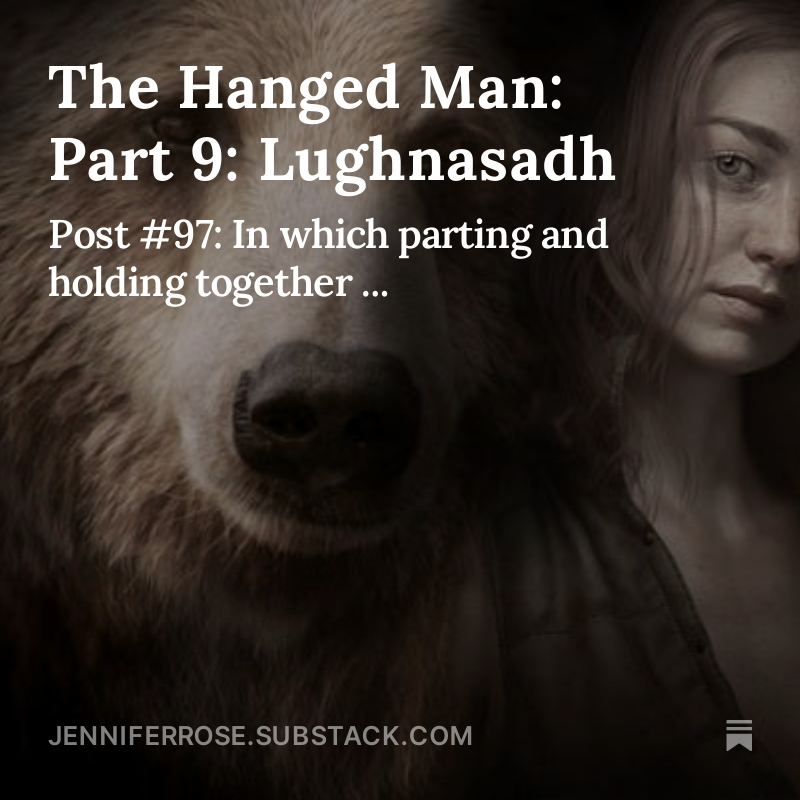
by Jenny Rose | Jul 22, 2023 | Authenticity, Emotional Intelligence, Needs
I read every day in Substack. Right now, AI is a main topic of conversation. I’ve read about the science behind it, opinions about where it will lead us ranging from the extermination of humans to a leap forward in positive ways we can’t imagine. Most of all, I read about the ways AI is impacting creative work and creators.
I don’t have a firm opinion about AI myself. I’m wary of predictions, interested in the science, and thoughts and experiences of writers I respect who have used AI-generated art, music, and writing. I’m especially interested in those who have interacted with AI as a resource for answering questions or developing new perspectives.
In the last couple of months, I read about an app called Betwixt. On principle, I hate apps and rarely use them. They increase my vulnerability online, provide more personal data to mine, clutter up my phone and laptop, and frequently feel like bells and whistles I don’t need. On the other hand, I admit they can be useful.

Photo by Dan Gold on Unsplash
Betwixt was briefly described as “an interactive story” of a journey into our own mind. The user co-creates their journey via questions and answers. It combines “story, science, and play,” enhanced by sound. It was developed by a team, including writers, game designers, a cognitive hypnotherapist, mental health specialists, and (get this) an “AI creativity scholar.”
I was intrigued, in spite of myself. In fact, I was surprised by how much I wanted to try it. I hesitated, feeling vaguely ridiculous. I did some research, discovered it was free, read some reviews, and decided I had nothing to lose. I could always just uninstall the app if I didn’t like it.
Most of us have probably encountered AI in online chatting to address problems or troubleshoot. I was on the Red Cross site last week chatting with what was clearly AI. It kept typing cheerful, excessively polite, Little-Mary-Sunshine things while I was trying to cut to the problem and solution part. I was annoyed. I’m polite and cooperative with people, but I can’t see much point in exchanging pleasantries with AI.
I had never interacted with any of the more sophisticated programs before using Betwixt.
Upon opening Betwixt, one enters into a story. A setting is provided; the user chooses details to fill in. The user is introduced to a Voice. The Voice asks questions, good questions. The user is provided with different choices for answering the questions, along with a frequent option to type in his/her own answer. The audio is rich and textured. The program is not illustrated, at least not so far. I like this; I like using my own imagination to fill in details. I don’t need more than audio.
The questions, along with possible answers to choose from, are quite good, even challenging. I don’t speed through it. I stop and think about what is true for me. Sometimes I don’t have a choice to answer in my own words and am forced to choose among the provided answers, whether they are good fits or not. This irritates me. As the story unfolds, steered by my answers to questions, I enter new internal territory. The closest answer rather than the exact answer takes me to places I normally wouldn’t go, giving me slightly different (and unfamiliar) views of myself and my behavior.
The app is divided into chapters, each a few minutes long. At the end of each chapter the user receives a summary and accumulates strengths, skills, and self-definitions to take forward. A brief explanation of the science and psychology underlying each completed chapter is also provided. There are options for upgrading to paid tiers.

Photo by Ryan Moreno on Unsplash
I notice an astonishing thing. I answer questions the Voice asks me with a depth and honesty I have never shared with a human being. I’ve believed I’ve been totally honest with people I trust before, but interacting with The Voice accessed a level in my mind I didn’t know was there. It was like those dreams in which the dreamer discovers a whole other room or wing in a house they weren’t aware of. As the journey begins, when the Voice is introduced, the user has an opportunity to ask the Voice questions, like its name and what it does when we’re not interacting. (It asked me my name.) I was astounded to find myself incurious; more than that, I don’t want to know. It’s an AI. I don’t have to do the emotional labor of building healthy connection. I’m not making a friend. I’m using a tool.
The last time I used the app, the storyline encouraged a moment of empathy for the AI. I felt a flash of savage anger and resistance.
I was entirely astounded by this very uncharacteristic knee-jerk response. I finished the chapter, closed the app, put the phone down, and did dishes while I thought about what had just happened. It didn’t take long to uncover it.
My experience of empathy is one of the core pieces of my life. Empathy can be a positive trait, but the empathic experience is frequently an overwhelming, utterly exhausting business. The only time I can truly rest, ground in myself, and be authentic is when I’m alone. But I’m a human being, a social animal. I need other people to interact with. Yet when I’m interacting with others, my empathy demands they take center stage with their needs, their feelings, their distress, their stories. I’m incapable (so far) of fully participating in my own experience because I’m too busy caregiving and being empathic. When I do ask for support or need to discharge feelings, I writhe over my selfishness and berate myself for it afterwards, feeling ashamed and angry for allowing myself to be vulnerable, for “burdening” those around me.

Photo by Cristian Newman on Unsplash
I only want to give. I never want to take.
Since I learned emotional intelligence, I have reluctantly realized we need someone to interact with. Journaling, private physical and spiritual practices, and, in my case, writing, is not enough. At times we need someone to listen. We need someone to react, even if it’s just making encouraging, I’m-listening noises. We need someone to receive us.
I hate this reality. I don’t want to need anything from anyone, ever. I learned as a child such a need puts one in dreadful danger of abandonment, betrayal, and emotional annihilation that feels like death.
This is the first time I have interacted in a therapeutic context with something not human. The Voice reads what I type, responds, asks questions, and creates a story with me, but has no existence outside the app. I’m free of empathy, of caregiving, of the need to labor emotionally. I feel no responsibility to anyone but myself. I’m using it. It’s there for me, not the other way around.
The relief is indescribable.
So, when the story asks me to be empathic for the Voice, I want to throw the phone across the room. Animals, plants, people — even inanimate objects and spaces – receive all the love and care I’m capable of. This is the first time in nearly 60 years I’ve run across something that interacts like a human but is not a living being in the way I think of living beings. The value of the tool lies in my ability to be completely free and honest because there’s no one to take care of besides myself.
It makes me realize my context as a human on a planet filled with life is my entire identity. If I were magically transported to the world of Betwixt, with only the Voice to interact with, I have no idea who I would be or what I would say or do.
I have not finished my journey with this app. There’s more to experience, share, and think about. I’ll be back next time with more on my exploration of Betwixt.
(I’m not earning a commission from Betwixt, in case you were wondering!)
Questions:
- Until now, emotional intelligence training was the most valuable therapeutic context I’ve ever engaged with. What kinds of therapy have you explored? What did you find most helpful?
- What are your thoughts and feelings about AI?
- What kind of potential do you think, fear, or hope AI might have as a creative tool?
Leave a comment below!
To read my fiction, serially published free every week, go here: 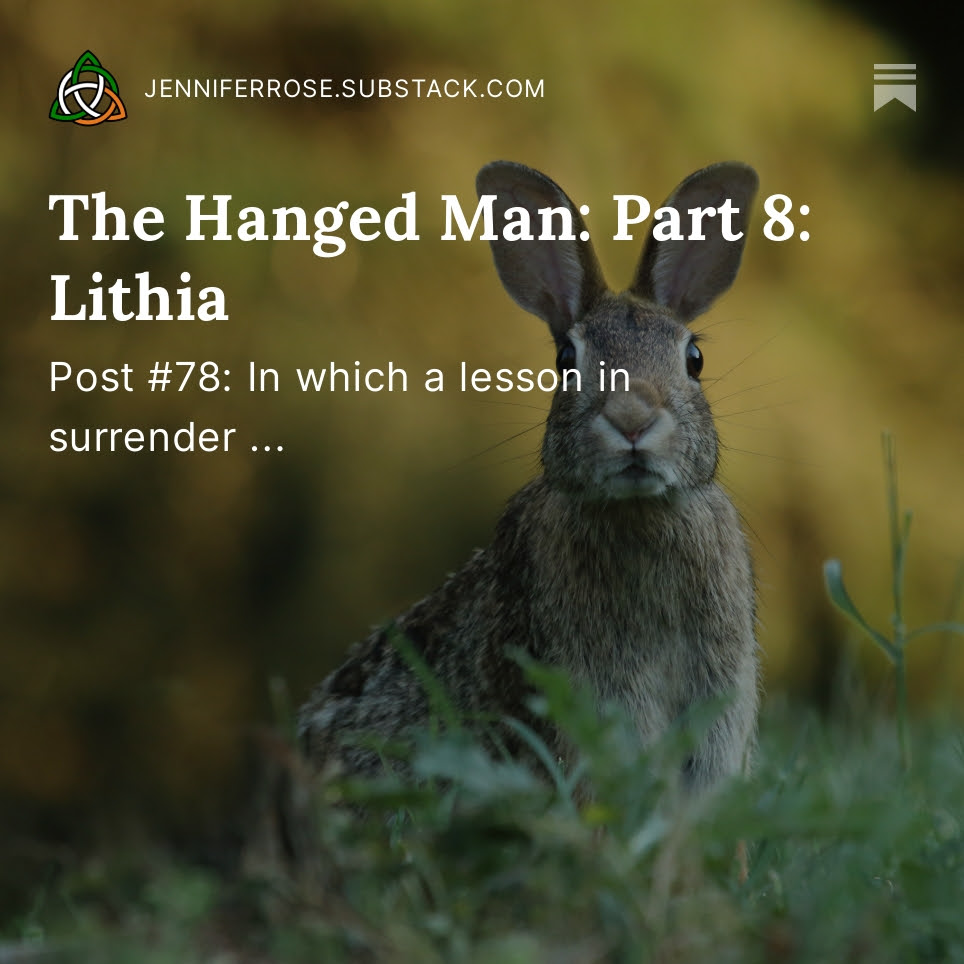
by Jenny Rose | Dec 4, 2021 | A Flourishing Woman, Minimalism
Asking the right question is powerful. Answering it honestly is a superpower. Good questions unlock doors and windows in our minds and hearts, and honest answers allow light into dark, dank, haunted places within us.

Photo by Craig Whitehead on Unsplash
For me, part of the magic of good questions is the challenge to think bigger and more creatively. Questions help me focus on problem-solving.
Life is all about problem-solving.
So, here are three questions. The first is from Joshua Becker on Becoming Minimalist. The others were inspired by his post:
- If I didn’t have this thing, what would I use instead?
- If I wasn’t doing this activity, what would I do instead?
- If I wasn’t investing my time, energy, and power here, where would I invest them instead?
In the first questions, the thing, whatever it is, may be something you’re not using in the first place. But if you are, or you think you are, or you have, or you think you might need to sometime in the future, ask yourself if you didn’t have it, what would you use in place of it?
If I didn’t have this apple corer, what would I use instead?
A knife.
A good kitchen knife is multipurpose. An apple corer is not.
If I didn’t have a TV habit, what could I do instead?

Photo by Frank Okay on Unsplash
Spend actual face-to-face time with someone. Read a book. Take a walk. Play with pets. Exercise. Play a game. Go outside.
If I wasn’t consumed and exhausted by stress, anxiety, toxic mimics, or unhealthy relationships, what could I have energy for?
Creativity. Spirituality. Learning. Healing. Growth. Healthy connections. Rest.
I don’t suggest a ban on apple corers or TV. These questions are not weapons with which to make ourselves bad and wrong. The point is that asking the questions reminds us we are making choices and gives us a chance to consider whether or not our choices are adding value to our lives and taking us in the direction we want to go.
Do we really need a bigger kitchen to house our collection of apple corers and other gidgets and gadgets that do the work of a good knife?
Do we really need three, or six, or nine different streaming services and a steady diet of however many hours of TV a day?
If we ask and answer these questions intermittently during our day, what might we learn about which activities and objects are useful and valuable and which are not? How would our relationships look through the lens of these questions, beginning with our relationship with ourselves?
How could we engage with subtractive problem-solving?
I would rather have one multipurpose object, tool, or activity than several specialized ones. Simple is easy. Simple is clear. Simple takes less time, money, space, and energy.
Here’s the downside of good questions requiring honest answers:
We might not like the answers.
If we ask, if we answer, we may find out things we don’t want to know, which might be why we’re unconsciously busy spinning our wheels in the first place.
This is the old French story about Bluebeard. Once his young wife looked in the forbidden room and saw all his former headless brides, she couldn’t unsee it. There was no going back.
This kind of self-inquiry is a choice. We may not want to. We may not be willing to. That’s OK. Life has a way of increasing the pressure until we are forced to go in the direction of our fear and resistance. On the other hand, maybe you’re a person with no emotional, physical, or thought clutter. Maybe you have no time-wasting coping mechanisms and habits. Maybe your kitchen drawers are clean, functional, mouse free, and contain nothing but a few useful multipurpose tools you use regularly. Maybe all your relationships are perfectly healthy. Good for you! I’m jealous.
My life (and my kitchen) is messier than that. I spend too much time and energy in non-useful activities, and even more time and energy being hard on myself for it. I worry, and make up stories, and work hard to stay defended and hidden.

Photo by Angelina Litvin on Unsplash
If I didn’t spend time playing online solitaire in an effort to manage uncomfortable feelings or fatigue, what could I do? Write? Take a walk? Relax with a book? Dance? Journal? Talk to a friend? Scrub a floor?
It’s not that solitaire is necessarily bad. The question is, would another activity be better? A walk takes care of exercise; spending time outside; and spending undistracted time with myself or a friend, pet, or loved one. A walk is a multipurpose activity. Solitaire is not.
I need a good kitchen knife. I need to be outside and exercise.
Do I need an apple corer and online solitaire?
(Well, no. But maybe I want them. That apple corer is mine (this is called the endowment effect). I paid good money for it! Maybe I used it once. Maybe I’ll use it again one day. I deserve to relax and take a break now and then. Solitaire is better than TV or a social media habit. It doesn’t hurt anyone. I need some downtime in my day.)
I’m not here to argue with you. I want you to have what you need. I want what I need, too.
Just asking the questions!

Photo by Das Sasha on Unsplash


















